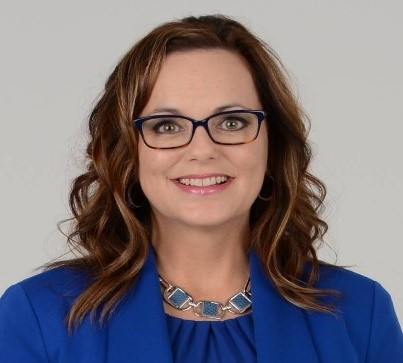By Samantha Compton
I love Summer! Though I am not a fan of the heat and humidity that often comes along with it, there is still something about summer that brings all the good feels!
Maybe it’s the memories of being a kid and experiencing the anticipation of the freedom of summer! Or maybe it’s all the extra fun activities, time spent with family, extended daylight hours, and a more relaxed schedule. Whatever it is, I love it and want to soak up every moment!
But along with the increased time spent on family, friends and fun, comes increased expenses. And often, less time is spent focused on tracking these expenses. It seems that being in “vacation mode” can translate to nearly everything! Summer fun can lead to Fall/Winter financial stress at the very time we need additional cash to pay for gifts and dreaded personal property taxes.
So, rather than checking OUT for Summer, maybe it’s time for a mid-year check-IN on your finances and things that could affect them!
Monthly Finances
SET A SUMMER BUDGET: If you haven’t already, it’s not too late to create a budget for the summer months. It’s easy to be in denial of those additional expenses that are coming up. However, by recognizing and planning for them, you’ll thank yourself later.
Be sure to include kid’s camp fees, summer memberships, and/or childcare expenses in addition to any vacation expenses you have coming up.
TRACK WEEKLY OR BIWEEKLY: Because of the additional activities that often occur during the summer, things can get off track quickly. I find that doing a 15-30 minute review of expenses on a weekly or bi-weekly basis can help prevent overspending for the month. If you find that more has been spent than was planned for, there is still time to pull in the reins before the end of that month. This also helps to keep your monthly spending targets front of mind.
STAY FOCUSED ON DEBT REDUCTION: If you have debt and have implemented a plan for paying that off, don’t stop now! It’s easy to get distracted and want to spend money on other things like summer trips, activities, etc. But remember, that kind of thinking is what created the debt to begin with! Find ways to stay connected to the discomfort and motivation that lead you to want to get out of debt. Be intentional about surrounding yourself with at least a FEW people who are making similar sacrifices in order to reach their goals as well. If this summer requires saying no to some things, remember that it will allow you to say YES for many more summers in the future!
RESOLVE NOT TO ADD ANY DEBT: It’s so tempting to “have fun now” and “pay later” in the summer months. Just remember how much it will hurt to have those payments when you are entering the holiday season! And, if you already have debt you are trying to pay down, remember how much longer that journey will be if you add to it!
Yearly Finances
IS IT REALLY AN EMERGENCY? I always recommend keeping at least $1,000 in a savings account for emergencies. Once you’ve reached that goal and are out of debt, the next step would be to save an additional amount that would cover 3-6 months’ worth of living expenses. Summer can be a time when taking an additional trip or buying that jet ski can feel like an emergency! J However, remember the time, effort, and discipline it took to build those funds intended to cover any unexpected emergencies the future might hold.
ST NICHOLAS AND UNCLE SAM ARE COMING: As I referenced above, each Fall/Winter, most people will have additional expenses, such as holiday gifts and yearly taxes. Now is a good time to begin planning for those expenses. The further out you plan and begin saving, the less it will cost you each month to have adequate funds to pay for them!
AN OUNCE OF PREVENTION: Have you heard that old saying? An ounce of prevention is worth a pound of cure! Summer is a good time to work on your home and address any maintenance or trouble areas that could cause problems later. Do you need to change your furnace filter or insulate pipes that froze last year? How are those gutters looking? Have you had someone inspect your heating and cooling systems recently? Staying on top of these kinds of things can help prevent expensive repairs later.
Long-Term Finances
MORE FOR LATER: Have you increased the amount you are contributing to your employer plan recently? If you haven’t, is that something you are able to do? Halfway through the year is a great time to review what you are contributing. If you are working on saving more in this area, go ahead and try increasing it by another 1% or more! If your employer offers a matching contribution, make sure you are contributing at least as much as they are willing to match!
CONSIDER A ROTH CONVERSION: Do you have a sizeable IRA with many years ahead of you before you’ll begin spending it? If so, this is also a good time to open up a conversation with your financial advisor along with your tax advisor to see if converting some of your IRA funds to Roth would make sense. Tax-free income in retirement is something you’ll thank yourself for later!
REVIEW YOUR OVERALL PLAN: Last, but not least, how long has it been since you reviewed your long-term financial goals and your plan and progress for reaching them? If it’s been a while, you might want to schedule a time to do that with your Financial Advisor. Your Advisor’s schedule may fill up as the Fall and Winter months arrive so now may be an easier time to schedule a time that works well for everyone!

Samantha Compton is an SWSM contributor and financial advisor. She is also a Senior Financial Advisor & Women’s Investment Specialist with an SEC Registered Investment Advisor Firm in the Kansas City, MO area. She places a high value on financial education and believes it is essential for creating and sticking to a well-written financial plan!
Disclaimers:
This article is written to provide general information on the subjects covered. It is not, however, intended to provide specific legal or tax advice and cannot be used to avoid tax penalties or to promote, market, or recommend any tax plan or arrangement. Please note that Wise Wealth, LLC and its representatives do not give legal or tax advice. Consult your tax advisor or attorney for advice specific to your circumstances.










